Thomas E. Ricks's Blog, page 204
February 1, 2012
Will the Saudis follow through and intervene in favor of Iraq's Sunnis?
By John H. Haas
Best Defense department of sectarian affairs
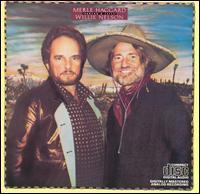
When we think about how the Iraq war upset whatever once passed for equilibrium
in that part of the Middle East, most of us think in terms of the boost it gave
to Iran by removing a historic enemy. But there were and are other players
intimately concerned about the consequences of the changes we initiated in
Iraq, as I was reminded of last week as I did a little Googling into some of
the nooks and crannies of the last decade. This, for instance, got my
attention:
"But if a
phased [U.S.] troop withdrawal does begin, the violence will escalate
dramatically. In this case, remaining on the sidelines would be
unacceptable to Saudi Arabia. To turn a blind eye to the massacre of Iraqi Sunnis
would be to abandon the principles upon which the kingdom was founded. It would
undermine Saudi Arabia's credibility in the Sunni world and would be a
capitulation to Iran's militarist actions in the region. To be sure,
Saudi engagement in Iraq carries great risks -- it could spark a regional war.
So be it: The consequences of inaction are far worse."
Those ominous words were written by Nawaf Obaid, national security adviser to
King Abdullah of Saudi Arabia, late in 2006. This was, you will recall,
when popular discontent with the war was cresting at the mid-term elections and
the Iraq study group was expected soon to recommend a U.S. draw-down; it was
also shortly before President Bush announced the surge.
We all know what happened. U.S. troops heroically redoubled their efforts
to provide security in Iraq, the horrific violence of 2006-2007 eventually
subsided, and Iraqis were given the space to arrive at some kind of political
reconciliation which would, it was hoped, allow the nation to proceed without
tumbling into the apocalypse we'd witnessed -- and they'd suffered -- over the past
several years. That broader political aim was not fully achieved.
What if the period 2007-2010 wasn't a transition for Iraq, but a
pause? What if the dynamics that gave us a sectarian civil war are still
very much present, and Iraq spirals once again toward apocalypse?
The Saudis aren't any less concerned about the Sunni population of Iraq now
than they were in 2006, and Saudi-Iraqi
relations are simply dismal. If Sunnis
appear to be the targets of sectarian cleansing once again, will the Saudis
be any less willing to risk a regional war? And then?
Iran needs
your prayers, it's true, but save a few for the Saudis too.
John H. Haas
teaches history at
Bethel College in Indiana. Or maybe Cleveland.
On the competence of American commanders in World War II

I've been reading Peter Schifferle's America's
School for War: Fort Leavenworth, Officer Education and Victory in World War II.
Generally I found it kind of dull, feeling a bit like a biography written only
about what a person did between 9 and 5 every day.
That
said, I was intrigued and persuaded by his basic conclusion: Senior American
commanders were much more competent in World War II than in World War I, he
says, especially in the difficult art of coordinating the combat arms
(infantry, artillery, armor, aviation) to break through enemy lines and then
exploit that breakthrough. The reason for this competence, he says, was the
education they received at Fort Leavenworth in the interwar period. He quotes
the comment of German Field Marshal Gerd von Rundstedt, who after being
captured in 1945 reportedly said, "We cannot understand the difference in your
leadership in the last war and in this. We could understand it if you had
produced one superior corps commander, but now we find all of your corps
commanders good and of equal superiority."
VP Biden as a reliable counterindicator: He advised against the bin Laden raid

In an uncertain world, there is one thing we can
always count on: Joe
Biden will be wrong about major foreign policy moves.
As long as President Obama continues to do the
opposite of what his veep recommends, he should do alright.
January 31, 2012
Ignorance in the letters to the Marine Corps Gazette: He should remember when Catholics suffered discrimination
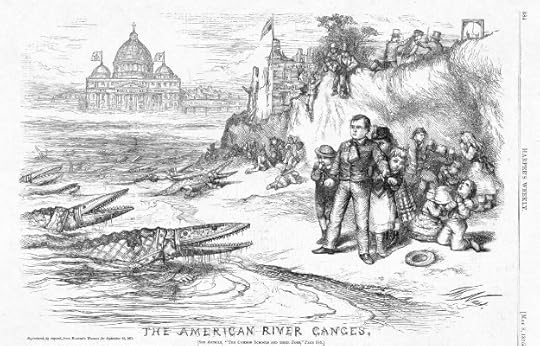
Col. Paul Frapollo, USMC (Ret.) writes to the Marine Corps Gazette (Feb. 2012 issue)
to bemoan openly gay people being allowed to serve in the military. "Now that
Congress has decreed that gays, lesbians, bisexuals and transgenders can serve,
I predict that political correctness, carried to these extremes, will
ultimately severely weaken our combat capabilities."
He continues that "our country was founded as a
Christian nation," and adds that he is especially troubled because, he says, "I
am a Catholic." As such, he writes, he could not serve alongside open
homosexuals.
It seems to be that he wants to nail the door shut
after he made it in. There was a long period in American history when Catholics
were not regarded as Christians, and in fact were discriminated against because
of that. In the 17th century, Catholics were forbidden to settle in
Virginia and Massachusetts. The local newspaper I read every week in Maine was
founded as an anti-Catholic vehicle -- and a Catholic priest was tarred and
feathered in the town in the 19th century. That was about the same
time a mob burned a convent in Massachusetts. (That anti-Catholic cartoon
above, by the way, is from 1876. It depicts Catholic bishops attacking innocent
schoolchildren.)
I can imagine someone writing awhile ago that
allowing Catholics to be colonels in the Marines would weaken the institution.
But eventually, what some people call "political
correctness" deemed that anti-Catholicism was wrong. And so there were no complaints when Paul
Frappollo enlisted in the Marines in 1949, and he rose to command a fighter
squadron in Danang during the Vietnam War.
And yes, someday there will be an openly gay commander of a Marine
fighter squadron, if there hasn't already been one.
What we saw, but failed to understand, about the Iraqi insurgency in 2003-2005

By Richard Buchanan
Best Defense library of Iraq
war memoirs
Jasim Muhammad 'Abd
Salih Al-Mashhadani -- who was this person and why was he of importance to the
Sunni insurgency in Diyala 2005?
Al-Mashhadani was
not your everyday Iraqi name, known in 2003 to anyone in MNF-I. To a
group of fellow Iraqis of similar beliefs, both religiously and politically, he
was a "true believer." MNF-I would painfully learn of his power as the attacks by the "Islamic Army in Iraq" (IAI) started gaining
strength in Baghdad by early to mid 2004.
Al-Mashhadani and his initial
core group or "ecosystem" began meeting immediately after the arrival of U.S. forces in Baghdad in April 2003. The meetings, which were interspaced with their
daily prayers (both the early morning and final late night prayers), focused on
the structuring of "companies" -- the Arabic term company does not reflect
military units or business units. Al-Mashhaddani used the term to initially
mean "businesses," as a cover term if outsiders picked up on the use of the
word. This might have been an indicator that Masshhadani had been a former
Iraqi Intelligence Service (IIS) officer before the U.S. entered Iraq in 2003.
A study of the initial core members would
verify what Dr. David Kilcullen mentioned in his 2004 article "Countering
Global Insurgency" (on page 10): "Thus friendships, webs of acquaintance
and networks of mutual obligation stretch worldwide between and among groups.
Similarly, within jihad theatres, groups cooperate and develop bonds of
shared experience and mutual obligation.)" The group surrounding Mashhadani was
linked via personal friendships, common prayer sessions together in a number of
key Baghdad Sunni mosques, family ties, financial and business ties, and more
importantly, Mashhadani's ties to the IIS and former military officers.
Family relationships, business and financial
links, propaganda, and operational and planning linkages are critical aspects
of an insurgent ecosystem that express themselves via links, nodes,
and boundaries.
Here is an example of a "normal" day in
the life of the Mashhadani core group in Baghdad. Meetings like this occurred almost everyday in some form or fashion, starting approximately one
week after the arrival of U.S. forces in Baghdad.
"Abu-'Ali and Abu-al-Darwa came before the
evening prayer, then Abu Athir came after the evening prayer from another
mosque. Abu-Mustafa (Abu-'Abdallah), Abu-Ibrahim, Abu-Fahad and Abu Hasan also
came. We discussed several issues related to the "company's affairs." Abu Ahmad
came by with a friend. They had discussions with the others and left with a CD.
We worked late with the computer and agreed to take it to Abu Ahmad tomorrow."
It is an urban myth that the Sunni insurgent groups did not talk to each other.
Cross talk among fellow prayer members, family members, other relationships, and
even other insurgent groups/communities was an ever ongoing daily event
especially with the widened effect of the use of prepaid cellphones by 2005. [Side
note: In this single meeting you have an example of every critical process that
a living breathing insurgent organism needs to do in order to survive and
Mashhadani did it daily.]
In the first few months after the arrival of
U.S. forces in Baghdad, Mashhadani and the core group were heavily involved in structuring the "companies," i.e.
forming units, finding houses (once they were searching for up to 30 locations), legally importing vehicles out of the UAE for the use by the various
"companies," and at the same time still attending prayers together on a regular
basis.[[BREAK]]
At the same time they were internally
structuring the companies, Mashhadani started focusing on the creation and
distribution of media products, including CDs, video films, printed materials and even
for a short time, a one on one interview with a Finnish reporter
(reported to have occurred sometime in mid 2004). All the while, Mashhadani maintained a
tight connection to the Internet via Internet cafes and satellite
cellphones. There were some indications that
Mashhadani maintained a wide ranging travel -- between Basra to
as far north as Mosul -- up through and into 2006.
I never did understand the connection between Mashhadani and Basra until a meeting with the G2 of the Ministry of Interior
Special Police (SP) Division who had approached the 3/4ID in January 2006 for
UAV assistance in monitoring a "major meeting with a number of high level
people coming from Basra" near the town of Khan bani Sa'ad that was to occur in
February 2006. Response by the S2 of the BCT was "He will not support the fucking
Iraqis." The Iraqi G2 never did mention as to why the individuals were coming
from Basra. He was killed in 2009 leading a SP BN into Sadr City in the fight
against JAM.
By late 2003 or early 2004, Mashhadani began
designing and testing Improvised Explosive Devices (IED) circuit boards using
the standard equipment seen in the early stages of the IED offensive -- wash
machine timers, remote control door openers, and TV circuit boards. He also did some
initial development work on remote controlled detonators. The interesting thing
is that as he was supplying the IED materials to his "companies," other Sunni
insurgent groups were contacting him and asking for support. He initially named
them the Islamic Iraqi League. The innovation was there, but the first series
of IEDs proved to be failures. His RC IED devices showed as early as 2003
a certain sophistication in their construction. OSINT now available confirms U.S.
capture of one of his 2003 devices and has a comment concerning the
device's abilities, which in 2003 was exceptionally advanced in design.
Mashhadani demanded that the groups using
them report back to him as to what exactly had happened in their use and
subsequent failures, using the groups as sort of a feedback mechanism on exactly how the devices had
been implemented and why the members of the groups thought the devices had failed. Actually a very
aggressive use of lessons learned, adaptation, and evolution based on a quick
turnaround. Masahhadani also required the companies take videos of the attacks which
were then posted to the Internet or placed on training CDs that were sent
to other Sunni groups.
Mashhadani's work is a great example of what John Robb refers to
as "innovations,
from tactics to weapons, [that] should be released as soon and as often as
practicable. Perfectionism, sclerotic planning processes, excessive
secrecy, risk aversion, and other plagues found in hierarchical organizations
are the enemy of success. The rule is :…release early and often…" (From John Robb's Standing
Orders 10 written in 2010 on his blog site "Global Guerrillas.")
After working through 2004 in Baghdad, why was
Mashhadani later to become important to the Sunni insurgent groups located in Diyala in
2004 and 2005?
After the initial buildout of the Baghdad
"companies," Mashhadani began moving trusted core members with their "companies"
into other towns surrounding Baghdad. The first one went to Baqubah in mid
to late 2004, which linked into an Ansar al Sunnah group led by a 26 year-old veterinarian who had moved there in late 2003/early 2004. This veterinarian was highly
respected by Mashhadani as being a devote Muslim, a great group leader, a very
focused organizer, and Kurdish.
Other "companies" were being
established in provinces at about the same time as Diyala. This was in fact a
kind of "self replication" of what had worked in Baghdad being modified to fit
the new operational environments. The first groups established outside Baghdad
all had a single characteristic -- they were established along the central
lines of communication in and out of Baghdad.
By mid 2004, the Baghdad based "companies"
were in full swing, collecting/buying IED materials, building/distributing
IEDs and using the IEDs against U.S. convoys. With this phase complete,
Mashhadani turned to weapons and other related equipment and began buying
weapons, night vision goggles, radios from other suppliers or groups and then
distributing them out to the various companies located in Baghdad and later to Baqubah. Once the weapons phase was completed the next phase was the
purchasing of computers and other materials needed for active "media production
elements." That process was also replicated and pushed out of Baghdad, again first to
Baqubah, and then on to other Iraqi towns.
In late 2005, the soon to be
renamed Iraq National Guard (later the 5th IA Division) had located
with assistance from the 3 HBCT, 3ID a large weapons cache in a palm groove
near Baqubah containing a large amount of weapons similar to those that had
been purchased and smuggled to Baqubah by Mashhadani. Both the IA and the 3/3
totally overlooked and did not fully "understand" was the extensive amount of
computer equipment, cell phones, IED materials that was also found in the
cache. None of the equipment made it back to Baghdad for analysis -- the IA
basically told the BCT they had destroyed it when in fact the officers of the
IA took it home with them, especially the cell phones and computer equipment.
The core question that has never been
fully answered until today is just how was it possible that within say three to
six months MNF-I was starting to face a full phase two guerrilla war when Mao
took years to reach the same stage? My answer was and still is we did not
"understand" the operational environment we were "seeing," meaning we failed to
realize that with excellently trained IIS intel types, who were devoted Muslim
nationalists, who had a military background, who had connections into the UAE
and other Arab countries and who could roam from Basra to Mosel, we were facing the
"perfect storm," and we were responsible for unknowingly creating that perfect
storm.
Why again is Mashhadani so important and why
did he get our fullest attention by 2005 in Diyala?
Mashhadani was the founder, spiritual
leader, and combat leader of the Islamic Army in Iraq (the IAI). To this day he
has never been captured or killed -- although there is some indication that the U.S. Army arrested him and held him in 2006 in Abu Ghraib, he was
later released. The IAI is still very active in Iraq and still has an active
web presence in both English and Arabic.
What I hope to have described in this short
overview is a description of an ever adapting, ever evolving living insurgent
ecosystem that we simply did not "understand" -- even when we were "seeing" it
daily in 2005.
Richard Buchanan is a
Special Forces veteran (Det A- Berlin Bde, 5th SFGA Viet Nam, Company A 10th
SFGA, and then again in 1986 with the CBTI, 10th SFGA). He was Senior Strategic
Debriefer at the Joint Allied Refugee Center Berlin (JAROC) Berlin Bde, Berlin
Germany. All told, he has over 30 years of intelligence experience as an intelligence analyst, a strategic debriefer, and an interrogation technician. He deployed to Iraq as a defense contractor (interrogator) from January 2005
through April 2006, where he first was assigned to the Joint Interrogator
Debriefing Center (JIDC) Abu Ghraib, Iraq, and later worked as the first-ever defense contractor interrogator assigned to a combat brigade in Iraq, the
3 HBCT, 3ID, located at FOB Warhorse, Baqubah. He recently wrote a
related article for Small Wars
Journal.
Romney's sons?
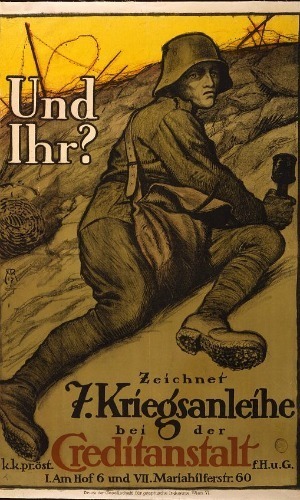
An acquaintance of mine who served
with the 1st Infantry Division in Vietnam, and whose son and
son-in-law are both preparing to deploy to Afghanistan, wonders why none
of Governor Romney's many sons ever saw
fit to join the military.
Romney's response is, Hey, I thought
it was a volunteer military.
Yet if everyone volunteered at the rate his family has, we would be forced to
re-institute a draft. I wonder if he has ever discussed joining the military
with any of his sons, and if so, whether he encouraged them or discouraged
them.
January 30, 2012
No, foreign policy matters in elections -- even in years when people think it doesn't

By Richard Fontaine
Best Defense department of politico-policy affairs
As your
post and nearly every article on the subject notes, "everyone
knows" that 2012 will not be a foreign policy election. As the polls
demonstrate, four-fifths of Americans want the president to focus on
domestic issues, not international ones, and less than five percent of voters
list foreign policy as the most important issue in the election. No
surprises here; the U.S. is in difficult economic straits, and as the United States winds
down in Afghanistan after ending the war in Iraq, pocketbook issues will
dominate the campaign.
This does not mean, however, that voters will not consider foreign policy as
they enter the voting booth. Both eventual candidates, the incumbent president included, will have to demonstrate to the electorate that they pass
the commander-in-chief credibility threshold. They must demonstrate that
they have the knowledge, the temperament, the skills and the wisdom to lead a
superpower in times of both peril and plenty. If they can cross this
threshold, they will still have to make a winning case on domestic
issues. If they cannot, no amount of focus on the American pocketbook
will salvage their chances. Foreign policy will matter in 2012.
This is one reason why some of the Republican candidates were felled by foreign
policy gaffes, even in a year when those gaffes might be seen as
unimportant. It's also why the candidates will work so hard to tout their
own foreign policy credentials -- and undermine their opponents' -- during this
long campaign. Expect to see months of talk about the economy, jobs, and
the proper size of government. These are important debates, and the
candidate who can put together the most compelling platform will be the likely
victor.
But expect also to see healthy doses of foreign
policy here and there between now and November. The commander-in-chief
hopeful who ignores it completely does so at his peril.
Richard Fontaine
is a senior advisor at the Center for a New American Security and
teaches the politics of national security in the Security Studies Program at
Georgetown University's School of Foreign Service. He previously served at the State Department,
on the National Security Council staff, and as foreign policy advisor to
Senator John McCain, including during the 2008 presidential election.
How America changed in the last 30 years: We're not so angry, but a lot meaner
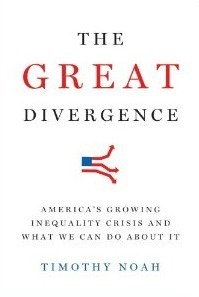
I've been reading an advance copy of
my friend Timothy Noah's The
Great Divergence, about the growth of income inequality in our country
over the last 30 years, and what to do about it. It's a terrific book -- he writes
about economic issues with an enviable ease and clarity. It comes out in a few months, but you can
order now on Amazon.
But I also was struck by an aside of
his: "America was an angrier place during the 1960s and 1970s, but it's a
meaner place today."
(HT to Molly R. for fact checking)
A request from CSBA: Fill out this survey about what you think about military pay
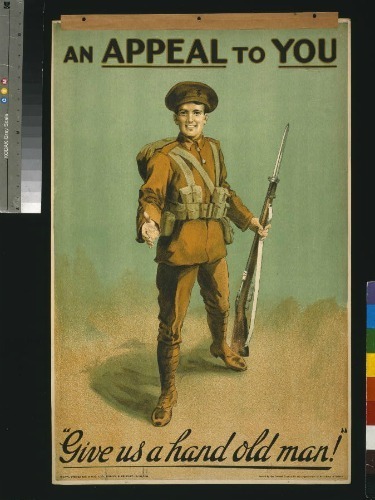
By Todd Harrison
Best Defense guest surveyor
Military pay and benefits are again a
hot topic in Washington. The defense budget is
likely to decline in the coming years, and military pay
and benefits could be part of this reduction.
For leaders in DoD and Congress to
make smart decisions about how to address this complex issue, they need to hear
from those who serve. To better inform this debate, CSBA is conducting an
online survey to measure how service members value different types of military
compensation. The data we collect will help provide a more accurate
picture of service members' preferences and how these preferences vary across
age groups, ranks, and other relevant factors. The results of the survey
will be published in the coming months as part of a CSBA report on the military
compensation system and shared with senior decision-makers in Washington.
Let your voice be heard by taking
this short survey at: www.csbamilsurvey.org
January 27, 2012
Parsing the new promotion list for Army 2 stars: There are some good signs here

By Douglas A. Ollivant
Best Defense department of Army-ology
Determining the state of cultural
change in the Army is not an exact science. However, if you believe, as I
do, that "personnel are policy," then who the Army selects as its next
generation of senior leaders is an important -- even critical -- indicator.
This is not to say that reading any
particular promotion list is a clear lens into the inner workings of the Army -- far
from it. I once memorably heard it said that interpreting messages from
any one promotion list is akin to the old Sovietology of trying to determine
who is up and coming in the USSR's leadership by observing their positions on
the stand at a May Day parade. Another mentor compares it to deciphering
the Dead Sea Scrolls. But bringing it back to the General Officer list,
there are lots of factors in play -- the existing pool of candidates from which
the board can choose, the projected requirements (by specialty) in the near
future, the relationships of candidates to the board members, diversity
preferences and etc. That said, nothing speaks to what the Army values
more than who it promotes. Those who hope to someday be among those
promoted are watching closely.
There are a number of surprises in the latest
2-star (Major General) selection list. For purposes of determining
future leaders, I will focus on the combat arms officers and pass over those
with specialties in personnel, logistics, and acquisition. Not that they
are not important, but they are not future combatant commanders or Army Chiefs
of Staff -- and they know it.
There is a well-known track to becoming
a Major General. You command a tactical battalion and a tactical brigade
in succession, preferably spending time as the Operations Officer (G3) and/or
Chief of Staff of one of the ten tactical divisions just before or after these
jobs. Upon promotion to one-star, you serve either as the Deputy
Commanding General of one of these same divisions, or (in rare cases) command
one of the three Combat Training Centers, in California, Louisiana or
Germany. Time as an executive officer to a four-star general is
desirable, and time on a Joint Staff is necessary to fulfill Goldwater-Nichols
requirements. These are the rules of the game as generally understood,
particularly for Armor and Infantry Officers. Aviators, Artillery and Air
Defense Artillery have slightly more relaxed rules, but the path is
recognizable and all tend to follow it. Recently retired GEN Petraeus,
for example, followed this path without variation from Lieutenant Colonel
through Brigadier General.
The majority of the officers on this
list successfully followed this path (or a near variant) -- Paul Funk, John (Mike)
Murray, Bryan Owens, John Rossi, Ross Ridge, Jeff Bailey, Kenneth Dahl, James
Pasquarette, Jeff Colt, and Joseph DiSalvo. This remains the widest, most
traditional path for success. I do not mean to imply by this that those
who take this path are somehow undeserving, or that promotion based on this
path is automatic. General Dahl, for example, stayed on this script
(though without being a divisional G3 or Chief of Staff), but still managed to
build on his experience as a leadership instructor at West Point (with a grad
degree in Organizational Management from North Carolina) by layering both a
year at Harvard's JFK School and a year as the Senior Army Fellow at
Brookings. Dahl was hardly shirking, however, as these two academic
"tours" were separated by a two-year brigade command that included a tour in
Iraq. It is definitely possible (though difficult) to play by the rules
and still engage in one (or more) of the "broadening experiences" that the Army
frequently talks about. For that matter, it is equally possible to have
no particularly novel assignments and still be a first-tier strategic leader.
But there are far more exceptions on
this list that I would have expected. Brigadier Generals H.R.
McMaster (rightly or wrongly seen as the litmus test for rewarding the
eclectic) and Mike Shields were each selected despite not having duty "with
troops" since their brigade level commands. The former spent time working
on doctrine at the Training and Doctrine Command, then went to command the
Anti-Corruption Task Force (Shafafiyat)
in Kabul, where he still labors. Mike Shields, on the other hand, has
over the past three years become one of the leading experts on high-level
Operations-Intelligence Fusion, first for the Joint Staff and now at JIEDDO,
the counter-IED command. It will be interesting to monitor whether either
(or both) are selected for divisional-level command.
John Uberti appears on this list, despite
having had "only" a garrison command as a Colonel, usually regarded as a
career-ending assignment. But his selection pales in surprise next to
that of Gordon Davis. Davis' resume is rich in operational assignments,
in no small part due to his assignment in Italy in the mid-'90s, which took him
to now largely forgotten deployments in Mozambique, Zaire, Liberia, Congo and
Rwanda. Having fluency in three European languages to talk to coalition
partners in these locations probably didn't hurt. However, General
Davis's resume has what most officers would consider not one, but two fatal
flaws -- he commanded a training battalion as a Lieutenant Colonel, and a training
support brigade as a Colonel. Simply put, training battalion
commanders -- let alone training support brigade commanders-are generally seen as
having culminated their careers, destined to top out as full colonels. That Davis' talents have been recognized despite being placed in these commands
(commands are slotted by a very obscure formula, not necessarily by merit) of
course speaks incredibly well of Davis, but is also a welcome crack in the rote
formula to success.
Douglas
A. Ollivant is a principal at the O2 Group (a strategic consulting and
technology firm), and senior fellow at the New America Foundation. He is
a retired Army officer.
Thomas E. Ricks's Blog
- Thomas E. Ricks's profile
- 436 followers



